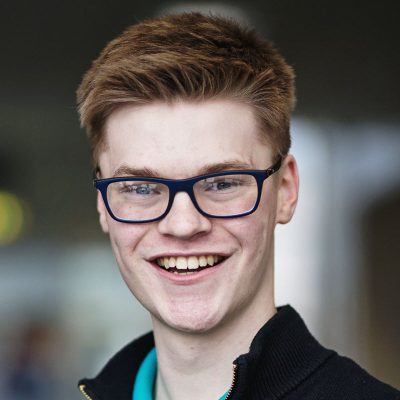Two-Week Training Grant
Application Period: CLOSED

The ESRS two-week training grant enables members of the ESRS in the early stages of their careers in sleep research or sleep medicine to visit a host institution in a European country other than their own to learn a skill or procedure not available at their home institution. The training should benefit the home institution when the successful applicant returns there.
A maximum amount of 1.400 EUR will be awarded.
A maximum of one grant per year will be financed.
Conditions:
- Training will be pursued in an experienced laboratory belonging to the ESRS Network of Sleep Research Laboratories.
- The grant sum awarded by the ESRS should cover travel and accommodation costs within Europe and provide enough money to live on during the 2-week period.
- Candidates must have an agreement with the host institution where their Fellowship will be carried out at time of application.
- Candidates must have adequate fluency in a language that permits effective communication at the host institution.
- Candidates must return to their home institution to apply the newly acquired research skills, or to continue to develop their research on completion of their visit.
- Candidates are responsible for identifying a skill or procedure at the host institution as well as a suitable supervisor. The skill or procedure needs to be transferrable to their home institution.
- The duration of the Fellowship may not be reduced or split.
- The Fellowship must be carried out on a full-time basis.
- The visit must commence after the funding decision date, allowing for sufficient time to complete travel, visa, and passport and housing formalities. The visit must be started within 1 year from notification of a successful grant application.
- All candidates must be members of the ESRS at the time of application.
- Candidates should be employed in sleep research or sleep medicine training at the time of application.
- There is no upper age limit for eligibility; however, preference will be given to candidates who are in the early stages of their career.
- Funding is open to all nationalities and for European and non-European based candidates.
Requirements:
- Supporting statement on the purpose of the visit, the transferable skill or procedure to be acquired and how this will enhance the applicant’s training and the host institution, whether it is in clinical sleep medicine or in a specific field of sleep research.
- Candidate’s learning path
- Work plan description (max. one page)
- Home supervisor’s training background and CV (max. one page)
- Host supervisor’s training background and CV (max. one page)
- Breakdown of travel, accommodation and projected subsistence costs at host institution.
- Candidate’s CV
- Candidate’s ID photo
- Candidate’s passport or ID
- Candidate’s highest degree
- On completion of the visit, the candidate will be required to write a summary report of the visit (~1000 words) to be forwarded to the ESRS executive committee.
Application Guidelines
Application Deadline: 31 January 2024
All application files should be submitted via the online application form only
Applications can be submitted for all funding opportunities simultaeneously
The ESRS Scientific Committee will rank the grant applications
Please contact ESRS if you have any question
Two-Week Training Grant Recipients
The ESRS is pleased to announce the recipients of the ESRS Two-Week Training Grant developed to enable ESRS members in the early stages of their careers in sleep research or sleep medicine to visit a host institution in a European country other than their own to learn a skill or procedure not available at their home institution.
We congratulate the recipients and cordially thank the supervisors and teams of the host laboratories for their support and cooperation in this endeavour.
- Claudia Picard-Deland – Montreal, Canada
Hosting Laboratory: Molecular Mind Laboratory, IMT School for Advanced Studies Lucca, Italy - Leonie Balter – Stockholm, Sweden
Hosting Laboratory: Institute for Neuroscience, Netherlands
- Ann Rosen – Stockholm, Sweden
Hosting Laboratory: University Medical Center Freiburg, Germany – Read Report - Christopher McCausland – Lisburn, Northern Ireland, United Kingdom
Hosting Laboratory: Reykjavik University Sleep Institute, Iceland – Read Report
Agata Gabryelska
Lodz, Poland
Haykuhi Hovakimyan
Armenia
Host Laboratory: University of Freiburg, Department of Psychology
Supervisor: Prof. Dieter Riemann
Sara Alvente
Bologna, Italy
Bologna, Italy
Host Laboratory: University of Oxford, United Kingdom
Supervisor: Vladyslav V. Vyazovskiy, PhD
Leonie Maurer
Oxford, United Kingdom
Host Laboratory: Karolinska Institut, Stockholm
Michelle Carr
Swansea, United Kingdom
Host Laboratory: Center for Investigation and Research in Sleep, Lausanne, Switzerland
Supervisor: Raphael Heinzer, MD
Heiður Grétarsdóttir
Reykjavik, Iceland
Host Laboratory: Parma University – Sleep Disorders Center
Supervisor:Prof. Dr. Liborio Parrino
Melanie Kölbel
Guildford, United Kingdom
Host Laboratory: Surrey Sleep Research Centre, Guildford, United Kingdom
Supervisor:Prof. Dr. Derk-Jan Dijk
Chiara Bartolacci, MSc
Rome, Italy
Host Laboratory: University of Oxford Sleep Research Centre, Nuffield Department of Clinical Neurosciences, Oxford, United Kingdom
Supervision: Prof. Colin Espie, Dr. Simon Kyle
Esther Afolalu
Coventry, United Kingdom
Host Laboratory: Center for Sleep Research and Sleep Medicine, University Medical Center, Department of Psychiatry & Psychotherapy, Freiburg, Germany
Supervision: Prof. Dieter Riemann
Michelle Magee
Cranbourne, Australia
Host Laboratory: Surrey Sleep Research Centre, Faculty of Health and Medical Sciences, University of Surrey, Guildford, United Kingdom
Supervision: Prof. Simon Archer



